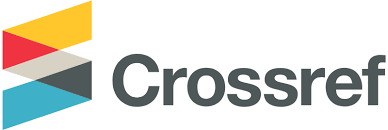PENINGKATAN SUBJECTIVE WELL-BEING IN SCHOOL PADA SISWA MELALUI “PEER SUPPORT AND TEACHING METHOD PROGRAM”
Abstrak
Beberapa penelitian melaporkan mengenai pentingnya siswa mempunyai subjective well-being yang baik di sekolah. Hal ini dikarenakan, subjective well-being yang tinggi akan berdampak pada prestasi akademik yang lebih baik, kreativitas yang lebih tinggi, dan penurunan angka membolos. Maka dari itu, penting untuk mengembangkan sebuah program dalam rangka meningkatkan subjective well-being siswa. Penelitian ini bertujuan untuk mengetahui apakah program intervensi kepada guru dan siswa berhasil meningkatkan subjective well-being siswa di sekolah. “Peer Support and Teaching Method Program” yaitu program peningkatan SWB siswa yang diberikan kepada guru dan siswa. Guru diberikan pelatihan mengenai metode mengajar yang disesuaikan dengan kebutuhan siswa, sedangkan siswa akan diberikan pelatihan sosial untuk meningkatkan kerjasama, empati dan dukungan antar teman sebaya. Partisipan dalam penelitian ini adalah 32 siswa kelas XI Akutansi, dimana 32 siswa tersebut diberikan pelatihan sosial, dan guru yang mengajar di kelas tersebut diberikan pelatihan metode mengajar dengan pendekatan konstruktivis. Analisis statistika menggunakan Wilcoxon Signed Rank Test untuk mengukur perbedaan data prestest dan posttes. Hasil menunjukkan bahwa pelatihan “Peer Support and Teaching Method Program” secara signifikan mampu meningkatkan subjective well-being siswa di sekolah.
Kata Kunci
Teks Lengkap:
PDFReferensi
Abele A (1995) Stimmung und Leistung: allgemein- und sozial psychologische Perspektive. Hogrefe, Göttingen, Germany
Cappella, E., Kim, H. Y., Neal, J. W., & Jackson, D. R. (2013). Classroom peer relationships and behavioral engagement in elementary school: The role of social network equity. American journal of community psychology, 52(3-4), 367-379.
Chen, Chen., Fan, Jieqiong., Jury, Mickael. (2017). Are perceived learning environment. Learning and Individual Differences : 54 pg 226 – 233
Cohen, J. (2006). Social, emotional, ethical, and academic education: Creating a climate for learning, participation in democracy, and well-being. Harvard Educational Review, 76(2), 201–237.
Danielsen, A. G., Samdal, O., Hetland, J., & Wold, B. (2009). School-related social support and students’perceived life satisfaction. The Journal of Educational Research, 102(4), 303–320. doi:10.3200/JOER. 102.4.303-320.
Greene TR, Noice H (1988) Influence of positive affect upon creative thinking and problem solving in children. Psychol Rep 63:895–898.doi:10.2466/pr0.1988.63.3.895
Harris, K. R., Santangelo, T., & Graham, S. (2008). Self-regulated strategy development in writing: Going beyond NLEs to a more balanced approach. Instructional Science, 36(5–6), 395–408.
Hughes, J. N., & Kwok, O. (2007). The influence of student–teacher and parent–teacher relationships on lower achieving readers' engagement and achievement in the primary grades. Journal of Educational Psychology, 99, 39–51.
Isen AM (2008) Some ways in which positive affect influences decision making and problem solving. In: Lewis M, Haviland-Jones JM, Feldmann Barrett L (eds) Handbook of emotions. Guilford, New York, pp 548–573
Johnson W, Kyvik KO, Mortensen EL, Skytthe A, Batty GD, Deary IJ. (2010) Education reduces the effects of genetic susceptibilities to poor physical health. Int J Epidemiol 39:406–414. doi:10.1093/ije/dyp314
Jiang, X., Huebner, E. S., & Siddall, J. (2013). A short-term longitudinal study of differential sources of school-related social support and adolescents’ school satisfaction. Social Indicators Research, 114(3), 1073–1086. doi:10.1007/s11205-012-0190-x.
King, Ronnel B., Datu, Jesus Alfonso. (2017). Happy classes make happy students: Classmates’ well-being predicts individual student well-being. Journal of School Psychology, 65, 116-128.
Mason, L. H. (2004). Explicit self-regulated strategy development versus reciprocal questioning: Effects on expository reading comprehension among struggling readers. Journal of Educational Psychology, 96(2), 283–296.
Moreno, R., & Mayer, R. E. (1999).Multimedia-supported metaphors formeaningmaking in mathematics. Cognition and Instruction, 17(3), 215–248.
Morris, I. (2009). Learning to ride elephants: Teaching happiness and well-being in schools. London: Continuum.
Roeser RW, Eccles JS, Freedman-Doan C (1999) Academic functioning and mental health in adolescence: patterns, progressions, and routes from childhood. J Adolesc Res 14:135–174. doi:10.1177/0743558499142002
Shoshani, A., Sarit, Steinmetz. (2014). Positive Psychology at School : A school-Based Intervention to promote adolescents’ Mental Health and Well-Being. Journal Happiness Studies 15:1289 – 1311
So, H. -J., & Brush, T. A. (2008). Student perceptions of collaborative learning, social presence and satisfaction in a blended learning environment: Relationships and critical factors. Computers & Education, 51(1), 318–336.
Tennant, J. E., Demaray, M. K., Malecki, C. K., Terry, M. N., Clary, M., & Elzinga, N. (2015). Students’ ratings of teacher support and academic and social–emotional well-being. School Psychology Quarterly, 30(4), 494.
Tharani, Ambreen., Husain, Yusra., Warwick, Ian. (2017). Learning Environment and Emotional Well-being : A qualitative study of undergraduate nursing students. Nurse Education Today 59 : 82-87
Tian, L., Liu, B., Huang, S., & Huebner, E. S. (2013). Perceived social support and school well-being among Chinese early and middle adolescents: The mediational role of self-esteem. Social Indicators Research, 113(3), 991–1008. doi:10.1007/s11205-012-0123-8.
Tian, Lili., Wang, Dushen., Huebner, E.S. (2014). Development and Validation of the Brief Adolescents’ Subjective Well-Being in School Scale (BASWBSS). Soc Indic Res. DOI 10.1007/s11205-014-0603-0
Tian, Lili., Tian, Qinqin, Huebner, E Scott. (2016). School Related Social Support and Adolescents’ School-Related Subjective Well-Being : The Mediating Role of Basic Psychological Needs Satisfaction at School. Social Indication Research. 128:105-129
Van Merriënboer, J. J. G., & Paas, F. (2003). Powerful learning and the many faces of instructional design: Toward a framework for the design of powerful learning environments.
In E. D. Corte, L. Verschaffel, N. Entwistle, & J. J. G. van Merriënboer (Eds.), Powerful learning environments: Unravelling basic components and dimensions (pp. 3–20). Oxford, UK: Elsevier Science.
Vermunt, J. D. (2003). The power of learning environments and the quality of student learning. In E. D. Corte, L. Verschaffel, N. Entwistle, & J. J. G. van Merriënboer (Eds.), Powerful learning environments: Unravelling basic components and dimensions (pp. 109–124). Oxford, UK: Elsevier Science.
Weinberger, E., &McCombs, B. L. (2001). The impact of learner-centered practices on the academic and non-academic outcomes of upper elementary and middle school students. (Paper presented at the The Annual Convention of the American Educational Research Association, Seattle).
Wijayanti, Puspita Adhi., Suliostibudhi, Rezki A. 2018. Peer Relation Sebagai Prediktor Utama School Well-Being Siswa Sekolah Dasar. Jurnal Psikologi Vol. 17 No. 1 April 2018, 89-104.
DOI: https://doi.org/10.24198/jpsp.v3i1.19363
Refbacks
- Saat ini tidak ada refbacks.
##submission.copyrightStatement##
##submission.license.cc.by-sa4.footer##
Jurnal ini terideks di:













